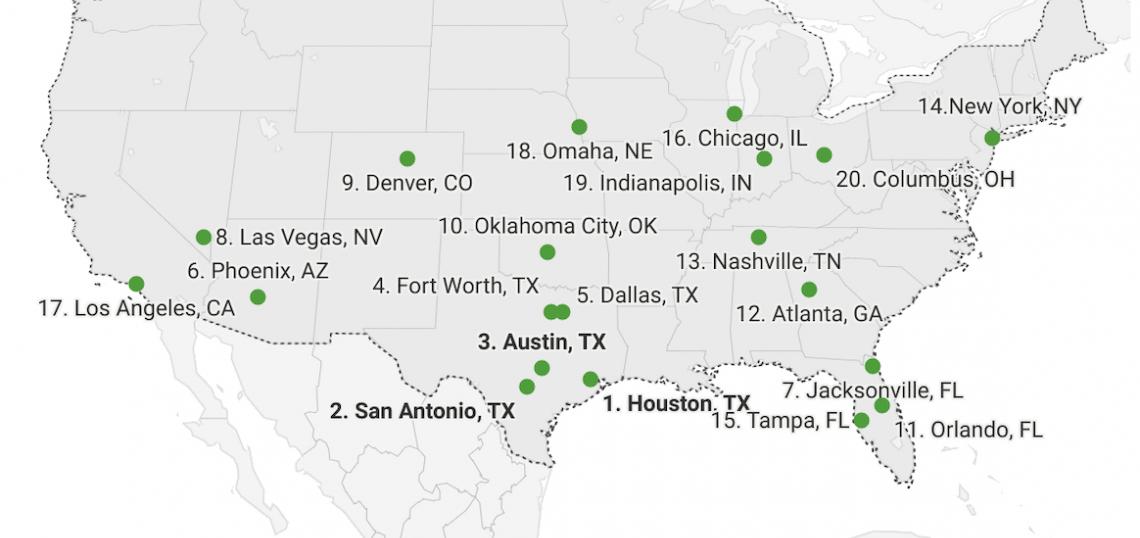In the past decade, the pace and amount of Austin real estate development has eclipsed that of all but two other cities in the nation (both in Texas), according to a new report from Storage Cafe, an online platform that provides storage unit listings across the nation.
The StorageCafe study looked at inventory expansions from 2013 to 2022 in the 100 largest U.S. cities to determine real estate growth. It analyzed new construction data for the country’s most populous cities, based on square footage in the case of commercial assets (industrial, office, retail and self storage) and on building permits in the case of residential units. It also analyzed unit count data from U.S. Census building permit records and deemed it a relevant indicator of the housing market activity that allowed us to visualize the market's evolution in relation to household formation.
At a national level, 94% of the single family permits and 72% of the multifamily permits translate into completions.
The city of Austin ranked third, behind Houston in the first spot and San Antonio in the second, for most activity across all real estate sectors examined for the study. Those sectors include single-family, multifamily, self-storage, office, retail, and industrial construction.
Over the past decade, according to the analysis, Austin issued permits for almost 99,000 new apartments, surpassing all but New York City and Los Angeles in the multifamily category. The Texas city set a record in 2022, with more than 15,000 units on the drawing board.
Austin ranked slightly lower — fifth in the nation — for new single-family home construction, with permits issued for more than 37,000 units. It rebounded in the office sector, however, with only New York City and Houston expanding office space by more than, Austin's 25 million square feet.
New construction in the Austin self-storage sector surged to about 4.3 million square feet, industrial space grew by over 14 million square feet, and the city added 4.8 million square feet of new retail construction.
Texas cities took the top five spots overall in the study, with Fort Worth and Dallas filling the fourth and fifth spots, respectively, in the rankings.






